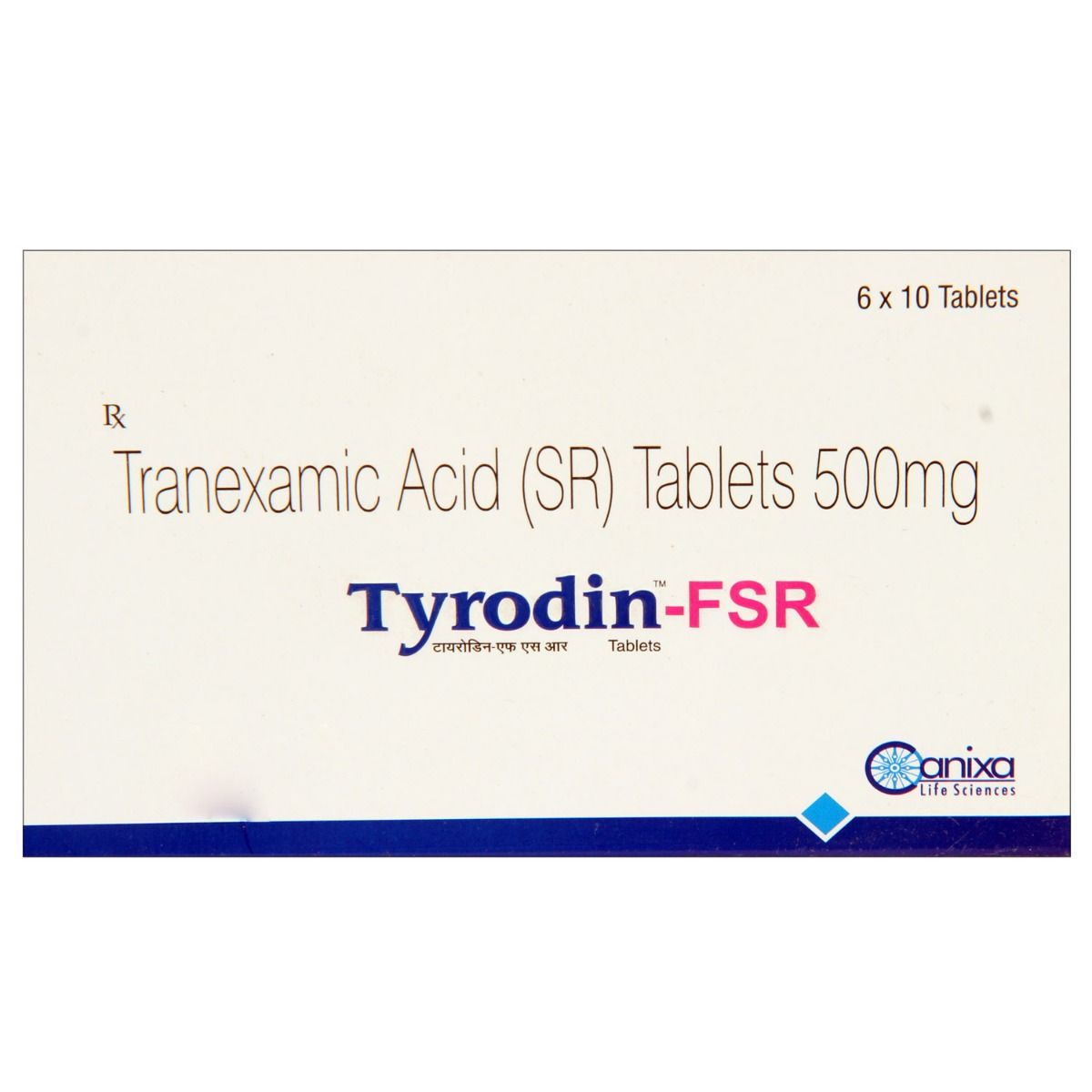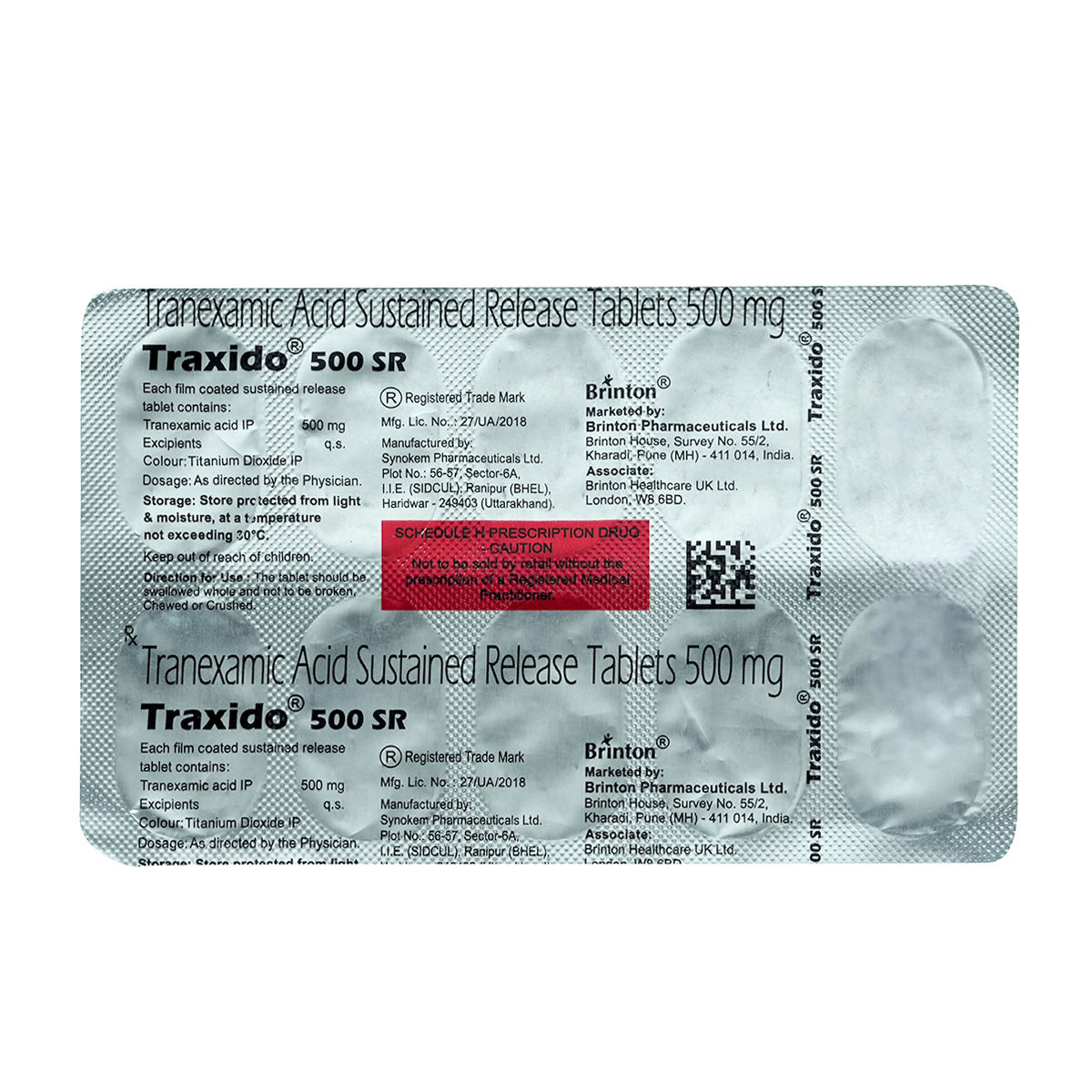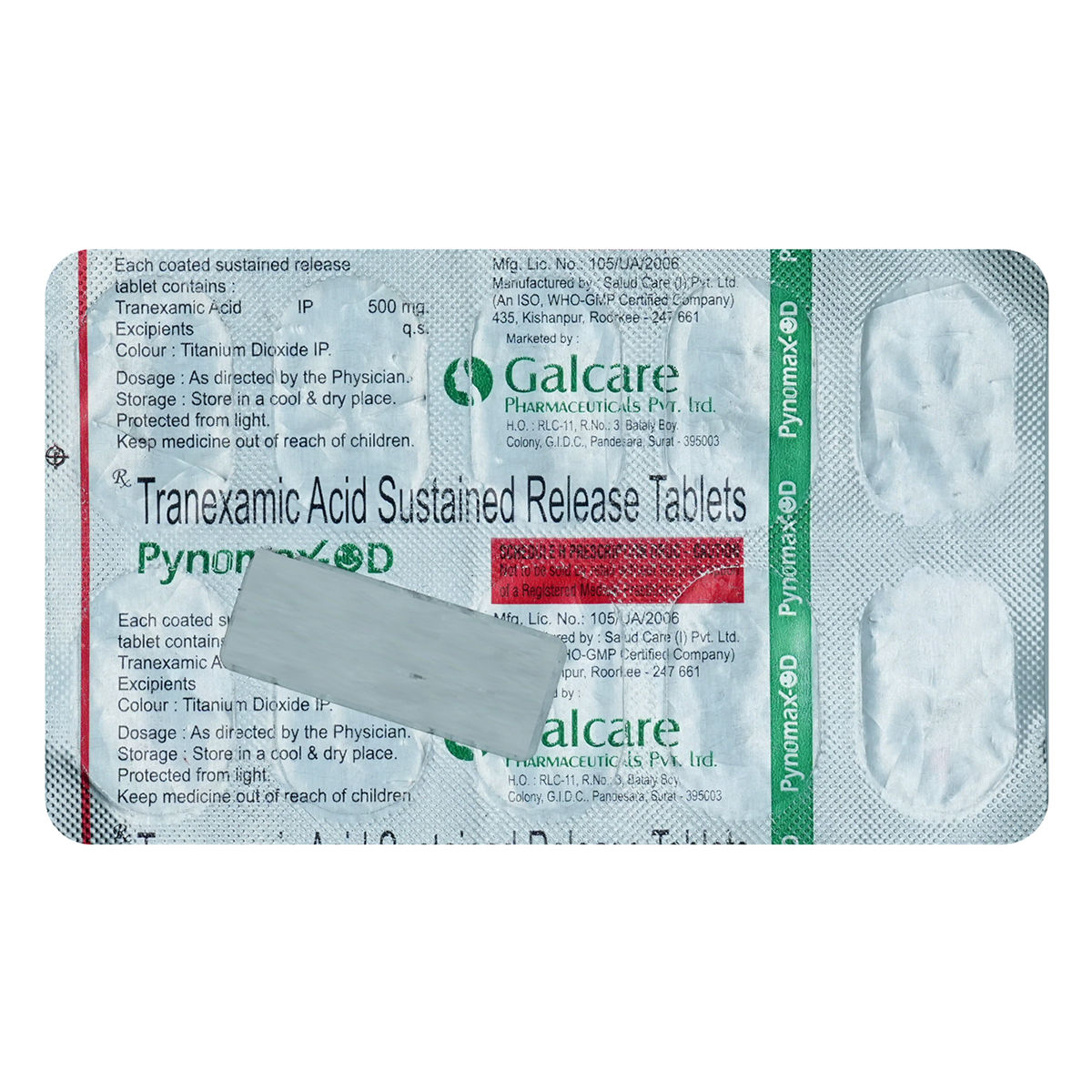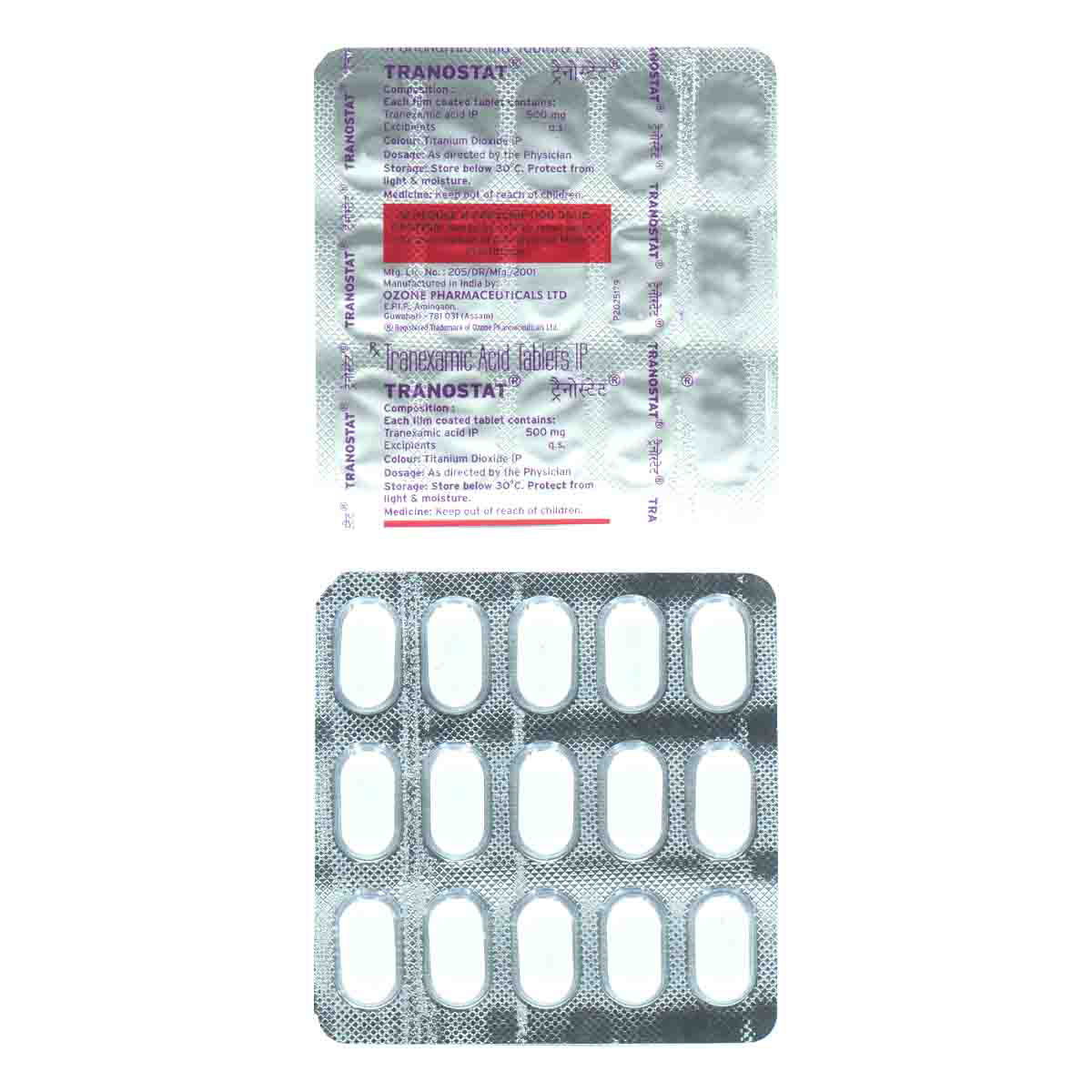Tranostat Tablet 10's
Tranostat Tablet is used to treat abnormal or unwanted bleeding. It is used to control bleeding in conditions such as heavy periods (menorrhagia), nose bleeds (epistaxis), cervical surgery (conization of the cervix), prostate surgery (post-prostatectomy), bladder surgery (post-cystectomy), bleeding inside the eye (traumatic hyphaema) and a hereditary disease called angioneurotic edema (HANO). The solution form of this medicine is used before tooth removal (dental extraction) in hemophiliacs (people who bleed more easily than normal). It contains Tranexamic acid, which regulates the breakdown of blood clots. It blocks the release and action of plasmin, an enzyme essential for the breakdown of clots present in the blood. This effect helps to slow down the bleeding. Some patients may experience side effects, such as nausea, diarrhoea, and itchy skin.
₹196.4*
MRP ₹239.5
18% off
₹203.57*
MRP ₹239.5
15% CB
₹35.93 cashback(15%)
Free Delivery
With Circle membership
(Inclusive of all Taxes)
This offer price is valid on orders above ₹800. Apply coupon PHARMA10/PHARMA18 (excluding restricted items)
Know Your Delivery Time
Provide Delivery Location


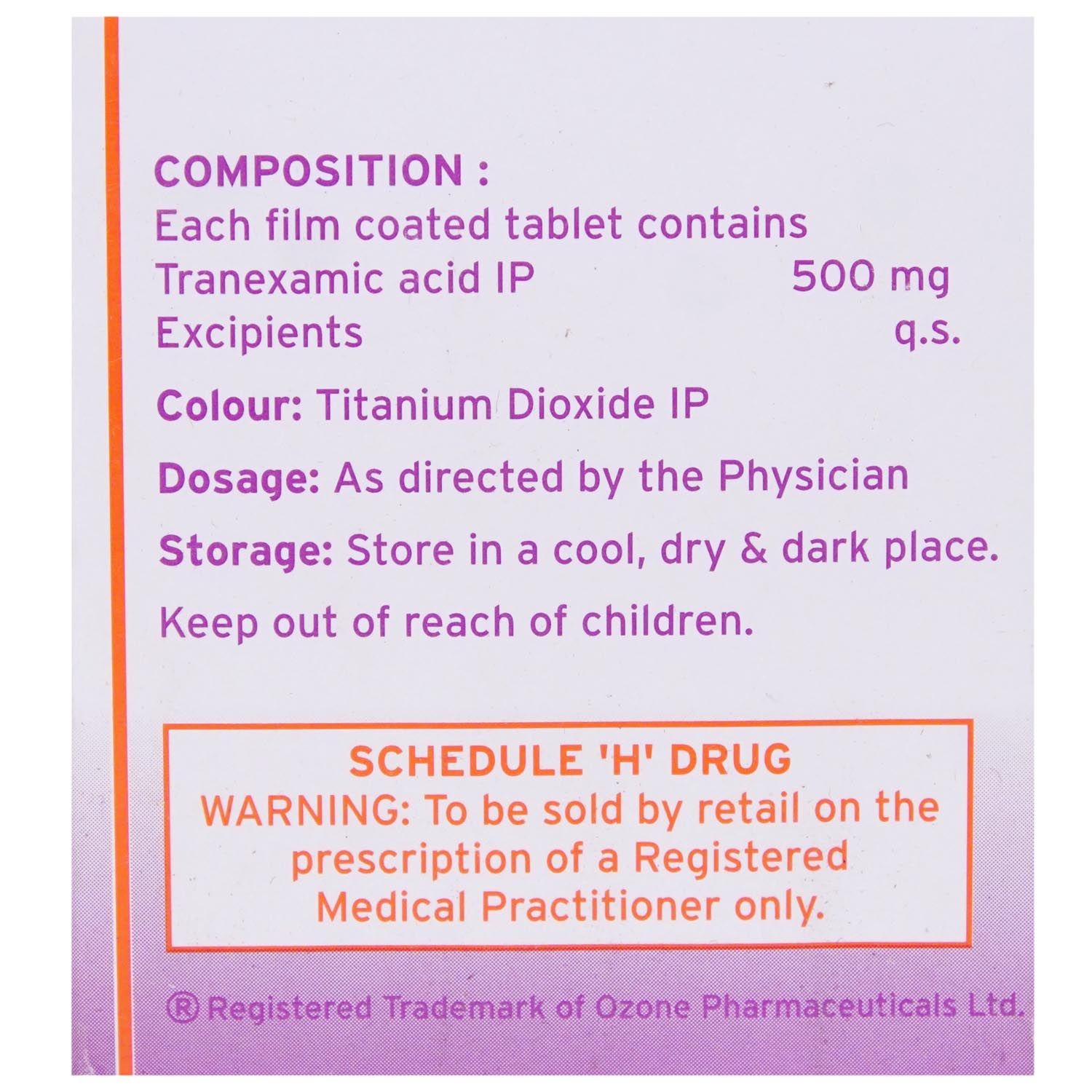



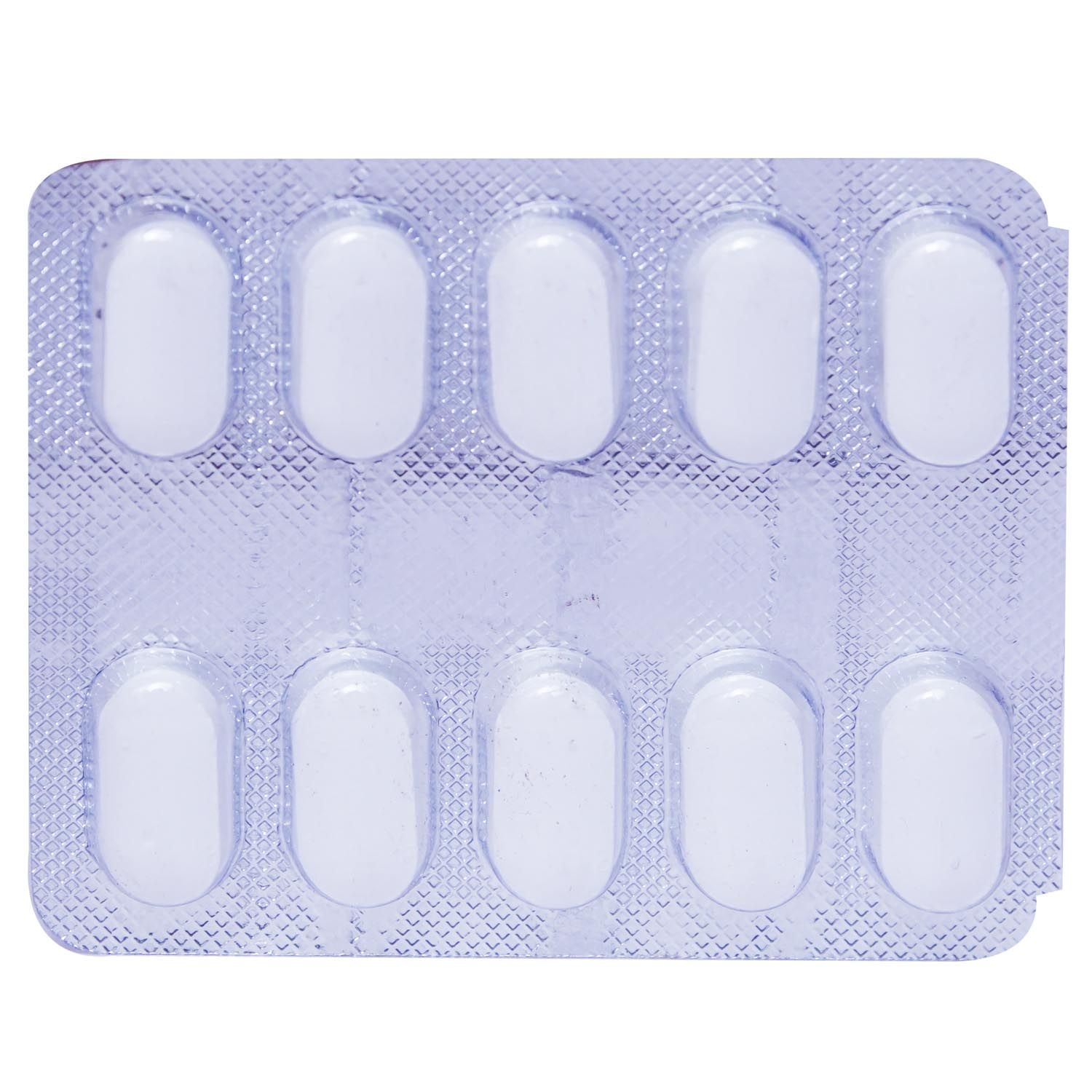
Selected Pack Size:10
10 ₹196.4
(₹19.64 per unit)
In Stock
15 ₹287
(₹19.13 per unit)
In Stock
Whats That

Secure Payment

India's Most Trusted Pharmacy

Genuine Products
Composition :
Manufacturer/Marketer :
Consume Type :
Return Policy :
Expires on or after :
About Tranostat Tablet
Tranostat Tablet belongs to the class of medications called ‘anti-fibrinolytic drugs’ used to treat abnormal or unwanted bleeding. It is used to control bleeding in conditions such as heavy periods (menorrhagia), nose bleeds (epistaxis), cervical surgery (conization of the cervix), prostate surgery (post-prostatectomy), bladder surgery (post-cystectomy), bleeding inside the eye (traumatic hyphaema) and a hereditary disease called angioneurotic edema (HANO). The solution form of this medicine is used before tooth removal (dental extraction) in hemophiliacs (people who bleed more easily than normal).
Tranostat Tablet contains ‘tranexamic acid’, which belongs to the class of ‘anti-fibrinolytic agents’. It is generally used for short-term treatment of bleeding. It acts by regulating the breakdown of blood clots. It blocks the release and action of plasmin, an enzyme essential for the breakdown of clots present in the blood. This effect helps to slow down the bleeding.
Tranostat Tablet should be taken as advised by your physician. The dose and duration of the medicine will be decided by your doctor based on your health condition. Tranostat Tablet may not cause any side effects when used orally. However, some patients may experience certain side effects, such as feeling sick (nausea), diarrhea, and itchy skin. These side effects usually go away on their own. If you develop any other serious side effects, such as vision problems while using Tranostat Tablet , consult your doctor immediately.
Tranostat Tablet should be avoided if you are allergic to it or if any other ingredients are present in it. Do not take this medicine if you have a history of kidney disease, thrombosis (formation of blood clots in the blood vessels), disseminated intravascular coagulation (a disease where blood clots form throughout your body) , and seizures (fits). Inform your doctor if you are taking birth control pills or fibrinolytic agents (medicines that dissolve blood clots). Also, inform your doctor if you are pregnant, planning to become pregnant or breastfeeding.
Uses of Tranostat Tablet
Medicinal Benefits
Tranostat Tablet contains ‘tranexamic acid’, which belongs to the class of ‘anti-fibrinolytic agents’. It acts by regulating the breakdown of blood clots in the body. It blocks the release and action of plasmin, an enzyme essential for the breakdown of clots in the blood. This effect helps to slow down abnormal bleeding.
Side Effects of Tranostat Tablet
- Nausea
- Diarrhea
- Itchy skin
- Pain at the injection site
- Vision problems
- Vomiting
Directions for Use
Storage
Drug Warnings
Before taking Tranostat Tablet , inform your doctor if you notice blood in your urine (except during periods), or have a history of uncontrollable bleeding, disseminated intravascular coagulation (DIC) (a disease where blood clots form throughout your body), irregular periods, and kidney disease. Also, inform your doctor if you or your family has a history of thrombosis (formation of blood clots in the blood vessels). Let your doctor know if you are taking medicine to treat a hereditary disease called angioneurotic oedema (HANO) every day for a long time. Your doctor may advise regular eye tests and blood tests to check your vision problems and also liver/kidney functioning. Inform your doctor if you are using birth control pills, including the patch, vaginal ring, and an intrauterine device (IUD), as there is a risk of deep vein thrombosis (a condition in which a blood clot is formed in the deeper vein, mostly the legs). Inform your doctor if you are using fibrinolytic agents (drugs that break blood clots) such as streptokinase, as they may stop the effect of Tranostat Tablet . Inform your doctor if you are pregnant, planning to become pregnant or breastfeeding.
Therapeutic Class
Drug-Drug Interactions
Drug-Food Interactions
Diet & Lifestyle Advise
- Ask your doctor about the exercises you prefer based on your health condition.
- Stay hydrated and consume plenty of fluids. Fluids are necessary to maintain blood flow in your body.
- Consume fresh fruits and vegetables. Consult a dietitian and prepare a diet plan. Eating healthy can help you to recover faster.
Habit Forming
How Tranostat Tablet Works
What if I have taken an overdose of Tranostat Tablet
Alcohol
Caution
Tranostat Tablet may not interact with alcohol. However, avoid the consumption of alcohol as it may worsen your health condition.
Pregnancy
Caution
Tranostat Tablet is a category B medicine and may not cause toxic effects to the fetus. However, it should be used only when prescribed by a doctor for pregnant women. Your doctor will administer it only if the benefits outweigh the risks.
Breast Feeding
Caution
Tranostat Tablet should be used in breastfeeding mothers only if prescribed by a doctor. Your doctor will administer it only if the benefits outweigh the risks.
Driving
Safe if prescribed
The oral use of tranexamic acid may cause dizziness. Hence, it is advised to avoid driving or operating machines for some period after receiving Tranostat Tablet .
Liver
Caution
Tranostat Tablet should be used with caution in patients with liver diseases. Your doctor may suggest a dose adjustment if needed based on your health condition.
Kidney
Caution
Tranostat Tablet should be used with caution in patients with kidney diseases. Your doctor may suggest a dose adjustment if needed based on your health condition.
Children
Caution
Tranostat Tablet should be used in children under 12 years of age only if clinically needed. The child specialist makes dose adjustments.
Country of origin
Manufacturer/Marketer address
Author Details
We provide you with authentic, trustworthy and relevant information
FAQs
Disclaimer
Customers Also Bought
Product Substitutes














